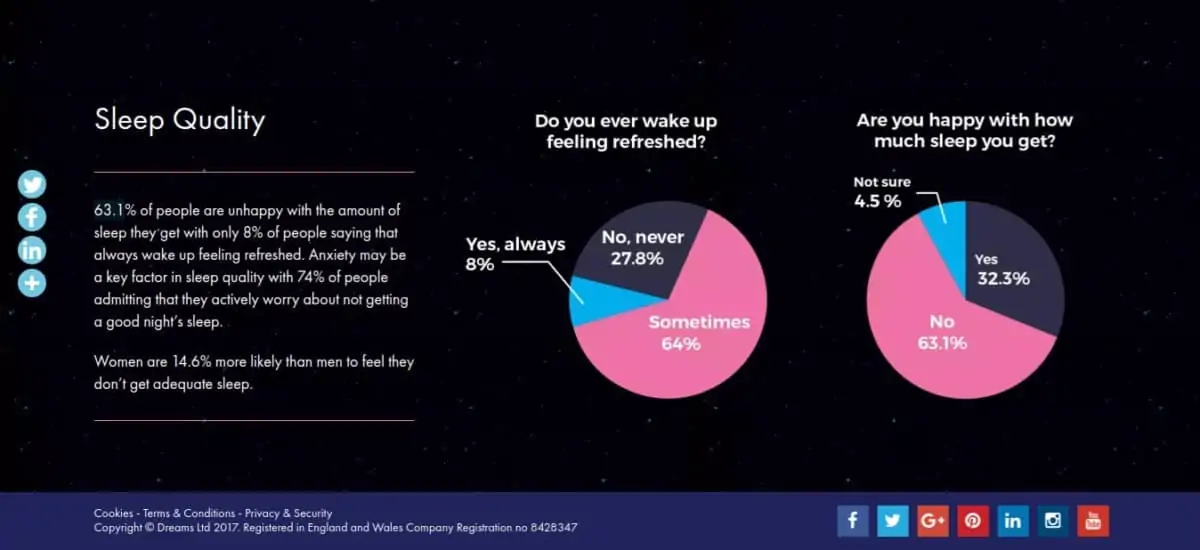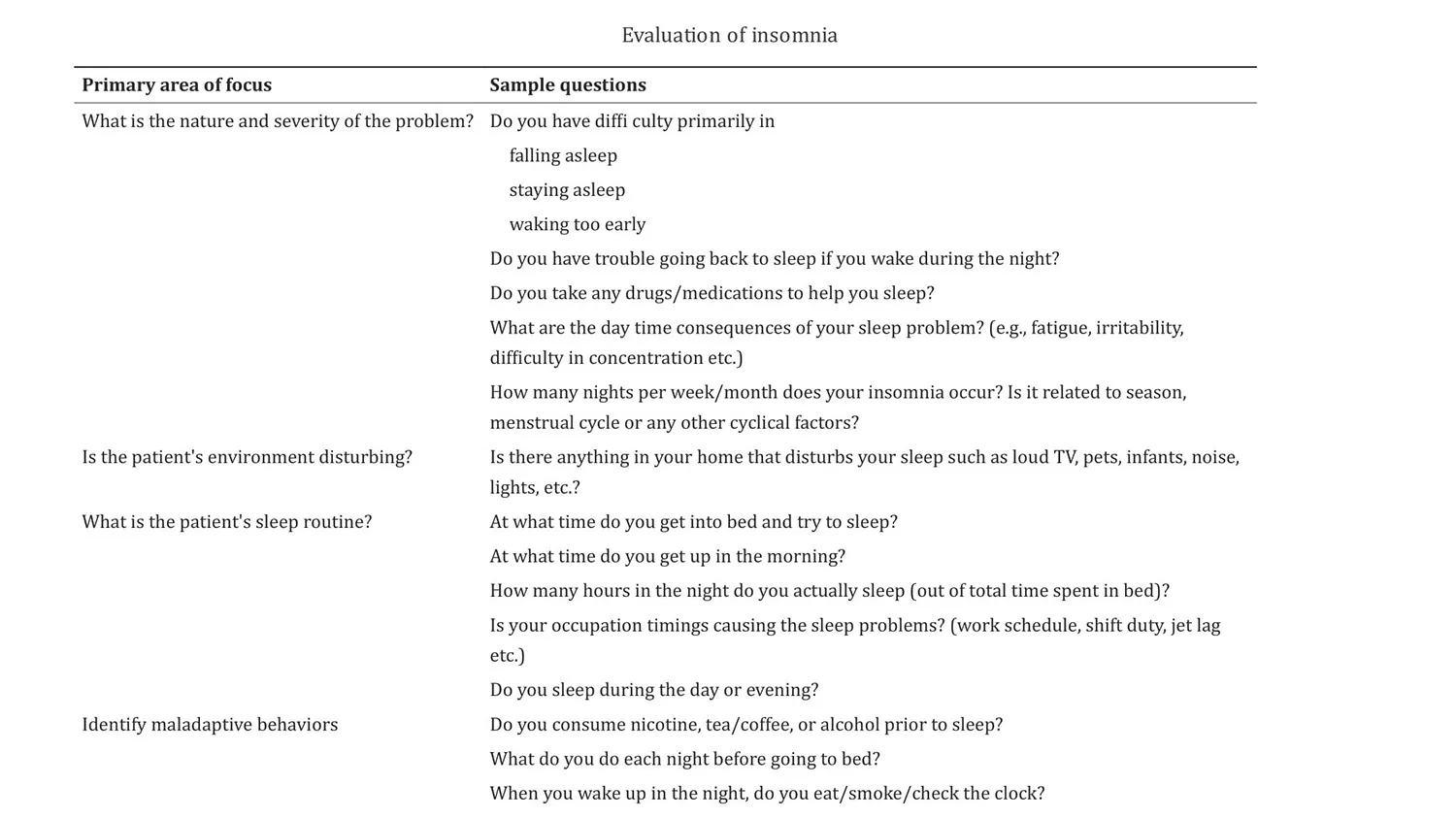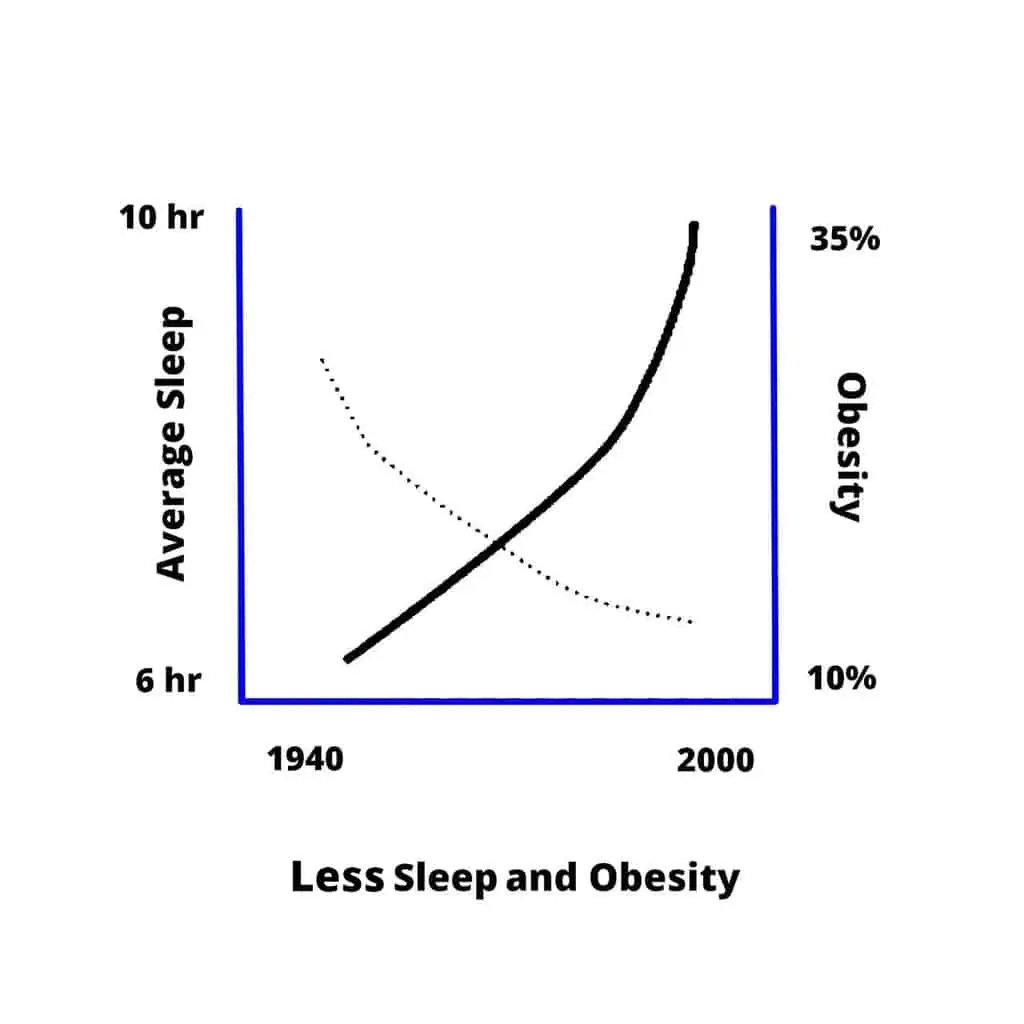📅 15 Mar 2025 • 📖 18 min read
Chances are, if you’re reading this, you got some sleep last night. But are you feeling rested?Insomnia is not just “sleeplessness” or “not getting enough sleep” — it can also mean sleep that doesn’t rejuvenate you.
Untreated insomnia can increase your risk of depression. It can raise your risk of cardiovascular issues like high blood pressure, risk of heart attack, and stroke. It can compromise your immune system and make you more likely to get Alzheimer’s.
Sleep loss is common in our 24/7 society, with many people routinely sleeping less than they need.
- The most common reason for insomnia or sleeplessness is an inability to remain asleep through the night.
- People who report insomnia lasting for one year are forty times more likely than normal to develop clinical depression.
- People who report insomnia lasting for one year are forty times more likely than normal to develop clinical depression.
- Sleep debt is a term describing the difference between the amount of sleep needed, and the amount of sleep obtained. Sleep debt can accumulate over time.
- Mythology says Hypnos, the Greek god of sleep, was the twin brother of Thanatos, the god of death.
- Insomnia was the first psychosomatic disorder to be identified, by Johann Heinroth in 1818.
- Insomniacs are 7 times more likely to feel helpless in a challenging situation.
Every morning, you tell yourself you’ll sleep early today. Every night, you fail that promise.
When you finally retire to your bed, you find yourself tossing and turning, lying awake and wondering:
Can I ever sleep better and wake up like a new person raring to go?
You remember someone telling you that Hypnos, the Greek god of sleep, was the twin brother of Thanatos, their god of death. Perhaps half-knowingly, you’re trying to go out in peaceful sleep.
You, too, might be ignoring your body’s need for sleep, or not knowing how to get to sleep quickly. If so, check out these 6 Best Sleep Hacks (From Science).
But then begins a journey in my head
— William Shakespeare, Sonnet 27
To work my mind, when body’s work’s expired …
What Is Insomnia or Sleeplessness?
Insomnia is a type of sleep disorder characterized by persistent difficulty in falling and staying asleep. Also known as sleeplessness, insomnolence, sleep deprivation, or loss/lack of sleep, it is frequently a result of stress from work, relationships, or personal crises.
The word “insomnia” originates from the Latin “in” (no) and “somnus” (sleep). However, insomnia is not just “no sleep” or “not getting enough sleep” — it can also mean sleep that doesn’t rejuvenate you.
- The American Sleep Association points out insomnia as the most common sleep disorder among American adults, affecting 50-70 million people.
- 30% of all adults experience short-term or transient insomnia, lasting a few days to a few weeks.
- 10% have long-term or chronic insomnia, lasting more than a month (Franzen, et al., 2008).
Insomnia can be primary or secondary.
- Primary insomnia: caused by unknown factors but is mostly thought to be due to undetected stress.
- Secondary insomnia: caused by known medical conditions, such as rumination, depression, anxiety disorders, physical pains, or drug or alcohol abuse.
What Do We Mean By Insomnia?
- Insomnia is defined as Difficulty Initiating And Maintaining Sleep (DIMS).
- Insomnia is more common in divorced, separated, widowed, older, White, and female gender people.
- Its primary causes are psychological factors, like worry, anxiety, stress, depression, behavioral habits, mental trauma, and overthinking or rumination.
According to Carney & Berry (2005), insomnia means one or more of the following symptoms:
- difficulty falling asleep while in bed,
- waking up frequently during the night,
- having trouble falling back asleep after waking,
- waking up too early in the morning, or
- having an unrefreshing (non-restorative) sleep.
Insomniacs are more likely to suffer from depression, anxiety, substance abuse, suicide, and immune illnesses (Taylor, et al., 2003). They have more workplace accidents and more fatal road accidents.
Childhood and adolescent insomnia can predict generalized anxiety disorder and depression, later in life (Shanahan, et al., 2014).
Chronic insomnia can ruin your relationships. People with poor sleep have poor relationships. They have irritable moods, scattered focus, and constant fatigue. The mental and physical exhaustion makes them miss the cues to what people expect from them. It also makes them overpromise and underdeliver.
When insomnia interferes with daytime activities, it becomes a serious health issue.
Researchers at the Great British Sleep Survey found that 63% of people are unhappy with the amount of sleep they get. Only 8 percent said they always wake up feeling refreshed. The same survey also found that sleep-deprived people are seven times more likely to feel helpless in any challenging situation.
How many hours of sleep-loss does it take to be classified as sleeplessness or sleep deprivation? According to studies, sleep deprivation is less than 6 hours of sleep every twenty-four hours.

Sleep remains a mystery. Despite all of science’s advances, we are still not sure why humans need sleep, although we have a bunch of unproven theories. However, we know fairly well what causes insomnia.
While sleep makes us feel better, energetic, alert, and happier, sleep loss can unleash terrible effects on the body, mood, and behavior. Even when we know the harms of sleep loss, as a society, we have somehow come to glorify our hours without a doze and our victories over our sleep.
Symptoms of Insomnia or Sleeplessness
An insomniac typically complains of the following symptoms: difficulty falling asleep at night, frequent waking up during the night, remaining asleep for a long stretch through the night, waking up too early, and feeling sluggish or sleepy during the day.
Other effects of insomnia could be vision problems and microsleeps during the day (increasing the risk of accidents), increased irritability, distracted attention when others are talking to them, and difficulty remembering things. They are unable to focus well on tasks and tend to make more errors.
They may also be found to have signs of depression, anxiety, obesity, and premature aging.
The three most common harmful after-effects of just one night without full sleep are:
- fatigue,
- bad mood,
- lack of attention.
A persistently sleep-deprived person may:
- look older than their actual age,
- appear exhausted all the time (chronic fatigue),
- react to others with anger and irritation, eat indiscriminately,
- become excessively fat (high-risk obesity),
- feel habitually anxious and stressed, and
- develop heart disease, low immunity, diabetes, and brain strokes.
Going without sleep for a long time kills animals in lab conditions, as scientists have found. Rats, when kept continuously awake for two weeks, fall dead.
Studies estimate companies lose approximately 11 days of productivity per year per head due to insomnia. In financial terms, it can be translated into a loss of $61.3 billion per year — as a nation. Prolonged sleep loss can also turn one into an abusive boss.
Corporate America has tried to persuade the public and employees to adopt good sleeping habits, along with quitting smoking, eating healthier, exercising daily, and taking time off work. All these have successfully increased their output.
Insomnia Evaluation
• To evaluate insomnia, a clinical examination that includes the patient’s history with insomnia as well as asking patient-specific questions is essential.

• For investigation, polysomnography (sleep study) is widely regarded as the gold standard for assessing sleep problems. It can detect underlying causes of insomnia, like sleep apnea (intermittent stoppage of breathing) and narcolepsy (excessive daytime sleepiness).
• Further reading: Diagnosis and treatment of chronic insomnia.
Bad Effects of Insomnia on Health
Sleep deprivation is not just about feeling sleepy the next day; it may increase our risk of developing illnesses, as well as affect our perception and cognitive abilities.
Sleep researchers observed what happens to animals when they are not allowed to sleep in laboratory conditions. Their results revealed that prolonged sleep loss has many harmful physical effects. Humans, though not tested in similar environments, would likely show most of the same effects. Read on.
1. Rising blood pressure
Within the first 24 hours of sleep deprivation, the blood pressure starts to rise.
2. Lowering of temperature and immunity
Soon, the body temperature drops and the immune system weakens. Matthew Walker, professor of neuroscience and psychology at the University of California, Berkeley, warns, “Routinely sleeping less than six or seven hours a night demolishes your immune system, more than doubling your risk of cancer.”
3. Physical illnesses
Prolonged lack of sleep is associated with increased risks of brain stroke and diseases of metabolism such as diabetes.
4. Genetic changes
Loss of sleep can affect genes too. Research from the University of Surrey found sleep loss causes changes in the expression of more than 700 of our genes.
After just one week of sleeping less, genes that control inflammation in the body increase their activity.
5. Brain loss
Long sleep deprivation can start your brain-cell death.
Scientists warn that when you don’t get enough sleep, over time your brain starts to shrink because of brain matter dying off sooner than naturally expected.
6. Reacting without thinking
Sleep loss can make you think less, and react more.
Brain studies show that after a night of fewer than 6 hours of sleep, the emotional center of our brain — the amygdala — becomes hyperactive. While the higher cortical centers of our brain, which do executive thinking, become less active.
As a result, sleep-deprived people tend to react to the unexpected without thinking. Poor sleep can worsen the quality of your judgments and the ability to make good, fast decisions.
7. Poor cognitive functions
Lack of sleep causes delayed reaction times, poor awareness of situations, and a reduction in the capacity to learn and retain information, barely within hours of continuous wakefulness.
Then, you begin to hear voices and have hallucinations (see ghosts).
The onset of hallucinations is one of the more typical symptoms of the sleep-deprived brain. Based on the duration of sleep deprivation, roughly 80% of the general population will inevitably experience hallucinations. The vast majority of these are visual hallucinations.
A German study showed when nurses on the night shift were given a visual perception test (called the Binocular Depth Inversion Illusion Test or “BDII”) after the first, third, and seventh shifts, they repeatedly failed it. They were hallucinating objects.
8. Piling up of brain deposits
During sleep, our brains and nervous systems are actually in intense activity, not resting. Of the many good things that sleep does for brain health, one is the cleansing of toxic deposits.
In 2015, scientists discovered for the first time that our brains have a drainage system, the glymphatic system. It cleans out the toxic amyloid-beta (Aβ) proteins that build up in our brains during the day.
These same proteins are the main reason behind Alzheimer’s, a disease that strips away all our memories. Scientists have seen large deposits of these Aβ proteins in the brains of Alzheimer’s patients.
Now the greater discovery was that while we sleep, the glymphatic system works 60 percent more actively to pump out these toxins. So, if you aren’t getting enough sleep, you’re probably pushing yourself towards Alzheimer’s.
9. Road accidents
Data shows sleepy drivers cause around 1.2 million car crashes annually in the US alone.
Sleep deprivation compels one to go into ‘microsleeps’ while doing other things. Microsleeps are often the worst offenders behind fatal road accidents.
Too little sleep in humans and animals, when persistent, creates serious health effects like high blood pressure and heart disease. Sleep deficit also damages circulation, digestion, metabolism, and the immune system.
10. Overall unhappiness
Many experts think dreams help you confront the emotional dramas in your life, and reach solutions. One study found people who had more REM sleep had less fear-related brain activity when given mild electric shocks the next day. Another study found naps that included REM sleep helped people recognize happy expressions better.
11. Death From Sleeplessness
In Japan, an increasing number of people are dying at their work desks over the past few years — as a result of exhaustion from overwork. The Japanese call it karōshi — literally meaning ‘death from overwork.
The issue of karōshi took the mainstream spotlight after the 2015 suicide of a 24-year-old employee at Dentsu Inc., sparking a national debate in Japan on the severely long working hours in the country. In fiscal 2016, Japan saw 107 karōshi cases that included 84 suicides and suicide attempts.
Just recently, in May 2018, a Japanese health ministry panel announced a draft plan to have at least 10% of companies introduce fixed rest hours for employees by 2020, to eliminate karōshi. However, the draft did not mention how long a worker must rest.
12. Obesity From Sleeplessness
Can you get fat from not sleeping?
Yes, sleep loss can make one fat. The Mayo Clinic found people who get 4 or fewer hours of sleep each night are 73% more likely to get overweight. And a 2015 Berkeley study showed that for every hour of sleep a person loses, they gain 2.1 points on their body mass index (BMI).
When a person sleeps less, their gut lining produces more ghrelin — the hunger hormone, which makes them eat more and store more fat.
Ghrelin stimulates:
- food intake
- fat deposition
- growth hormone release
Ghrelin obstructs:
- Insulin secretion
- Sympathetic nerve activity
- Heat production and energy expenditure
As a result, this hunger hormone, along with other factors such as reduced leptin and energy levels, makes you end up eating more, especially the ‘comfort foods.’

Sleep and stress work in an inverse relationship: the less your sleep, the more acute your stress; and the more the stress, the less you manage to sleep.
A study from the University of California found the final stage of your sleep cycle, REM sleep, during which you dream, helps you process emotional stress.
When you sleep less, this stress processing takes a beating. As an extra, lack of sleep causes the release of higher volumes of cortisol — your stress hormone. Learn how to reduce stress without medications.

Causes of Insomnia: Why Don’t You Sleep Well Enough At Night?
A variety of factors can cause or exacerbate insomnia, including stress, an irregular sleep schedule, poor sleep habits, mental health disorders such as anxiety and depression, physical illnesses and pain, medications, neurological problems, and specific sleep disorders.
Loss of sleep affects most people, at least at some point in their lives. Even when we know how important a good night of sleep is for our physical, mental, and emotional well-being, we do not get enough sleep on most days.
We already know that insomnia can be primary or secondary. Primary insomnia is untraceable to any known causes, but experts say it is mostly caused by undetected stress. Secondary insomnia may have physical (organ-related) or non-physical (mental origin) causes.
Non-physical causes of secondary insomnia:
- Overthinking (excessively and repeatedly thinking the same thoughts)
- Narcolepsy (a condition of severe and persistent daytime sleepiness)
- Shift work (that does not align with one’s biological clock or circadian rhythm)
- Work demands (causing one to overwork, carry work to home, worry, or overthink)
- Home life demands (causing one to feel stressed at home, not able to relax properly)
- Obstructive sleep apnea (stopping of airflow to the lungs during sleep, with normal breathing efforts)
- Delayed sleep phase syndrome or DSPS (going to sleep two or more hours beyond conventional bedtime)
Physical causes of secondary insomnia:
- Heart failure or heart pains (angina)
- Parkinson’s disease or Alzheimer’s disease
- Thyroid disorders such as hyperthyroidism
- Joint or muscle pains such as arthritis or myalgia
- Frequent urination due to irritable urinary bladder
- Acid reflux or gastro-enteric reflux disorder (GERD)
- Incontinence or bed-wetting, due to enlarged prostate or infection
- Allergies, asthma or chronic obstructive pulmonary disease (COPD)
- Sleep apnea, restless leg syndrome, or night terrors (pavor nocturnus)
- Menopausal syndrome
Artificial Light Causing Insomnia
Since the invention of the electric bulb, people have stopped going to bed early because they have access to artificial light when the sun goes down. With electric light, we started working longer hours, as well as having parties late into the night. Our extended work and late-into-the-night fun took over our sleep.
With the advent of internet devices, we started spending ‘ungodly’ hours of time working or amusing ourselves on our mobiles and laptops, instead of sleeping. The blue light emitted from these devices delayed our natural, biological sleeping times, making us get sleep-deprived even more.
The blue light from computer screens and digital devices can also cause eyestrain, dryness of the eyes, and impaired vision.
Even when you have half a dozen apps on your phone to help you get to sleep, you have no time to fire up any of them. By the time you hit the bed, you are hardly awake to see you are diving headfirst into a burnout.
Look around, and you’ll find many are managing their days with barely half the sleep they need.
CBT-I For Insomnia
Cognitive behavior therapy for Insomnia 9CBT-I) is currently the most recommended method to treat insomnia. However, there are 4 major issues of CBT-I:
- CBT-I is typically provided by mental health professionals, that is, clinical psychologists and cognitive behavioral therapists trained in it. So, it is not easily available as there aren’t many trained specialists.
- It comes at a higher out-of-pocket cost than medications. This is a serious drawback of accessing it.
- It produces slow improvements in symptoms, though the benefits last long after the treatment is over. The usual CBT-I treatment takes an initial assessment, followed by 6-8 follow-up sessions.
- It has two early negative effects: sleepiness and fatigue. However, according to the available data, for the majority of therapy takers, these are typically mild and resolve quickly.

Natural Cures of Insomnia: What To Do If You Go To Bed But Can’t Sleep?
The most rampant cause of modern society’s sleeplessness is a lack of control over their bedtime. Despite the fact that most people, when they wake up fatigued and achy, promise themselves they would go to bed early tonight.
The surprising part is almost all of us know how much sleep we need. But we don’t sleep enough. Millions of people struggle with insomnia and find themselves tossing and turning when they want to fall asleep.
There are around 75 different types of sleep disorders. Of these, sleep deprivation is the one we have the most control over.
If you’re an insomniac, you can fall asleep in a matter of minutes using the right strategy. Here are some effective tips to relax and easily fall asleep:
▪ Don’t go to bed unless you feel sleepy. Lying down to sleep when your mind is abuzz with excitement will invite insomnia. Relaxing purposefully is one of the key secrets to falling asleep quickly.
▪ If you are brimming with energy and alertness while it’s your bedtime, set up the following relaxation routine:
Take a warm bath. Change into your sleepwear. Play a piece of soothing music. Do some gentle stretching. Take a few deep breaths. Set the room temperature to a cooler point (60–67 °F or 15–19 °C). Make the room dark and put out all light sources. Push away your thoughts and worries for the next day. Meditate to relax your mind.
▪ If you are in bed but do not fall asleep within 20 minutes, get out of bed. Then do a gentle activity in low light, like sitting up and focusing your eyes on a distant object in the room. Make sure you do not switch on the blue screen of your phone or laptop or TV.
▪ 4-7-8 Breathing technique. Dr. Andrew Weil, who proposed it, claims the 4-7-8 breathing method can help people fall asleep fast. It consists of breathing in for 4 seconds, holding the breath for 7 seconds, and exhaling for 8 seconds. He asks to repeat it 3-4 times.
Please note that there isn’t much clinical evidence to back up the 4-7-8 method’s claims. Its main source of support is anecdotal evidence from satisfied practitioners, who claim it reduces anxiety and helps them fall asleep quickly.
Final Words
Perhaps the biggest enemies of sleep are our worries and anxieties.
Most of us have experienced the feeling that our heads begin to hum with anxiety just as we lay down to sleep. A daily practice of “worry journaling” can help you with this. Set aside 20 to 30 minutes to write about your concerns, ideally at least 2 hours before bedtime.
It’s time you stood toe-to-toe with some changeable factors in your environment that trigger stress in you. It might be that this modern life made you lose some of your sense of a healthy self, and you forgot to deal with the manageable baggage of stress that steers your mind and life. So, it’s time you take them head-on — by sleeping!
All the stress surveys conducted in the US expose perhaps the deadliest factor that inflames this situation even further, and even sparks depression — lack of rest. Now, you can handle your stress a lot better by simply fulfilling your daily sleep quota, but you don’t. You overwork at the expense of your rest hours, instead of changing your habits.
Getting 7 to 8 hours of sleep a night can help our body to function at its best in many ways. Read, listen, and download the 6 Sleep Hacks (From Science).
• • •
√ Also Read: 10 Greatest Health Benefits of A Good Night’s Sleep!
√ Please share it with someone if you found this helpful.
